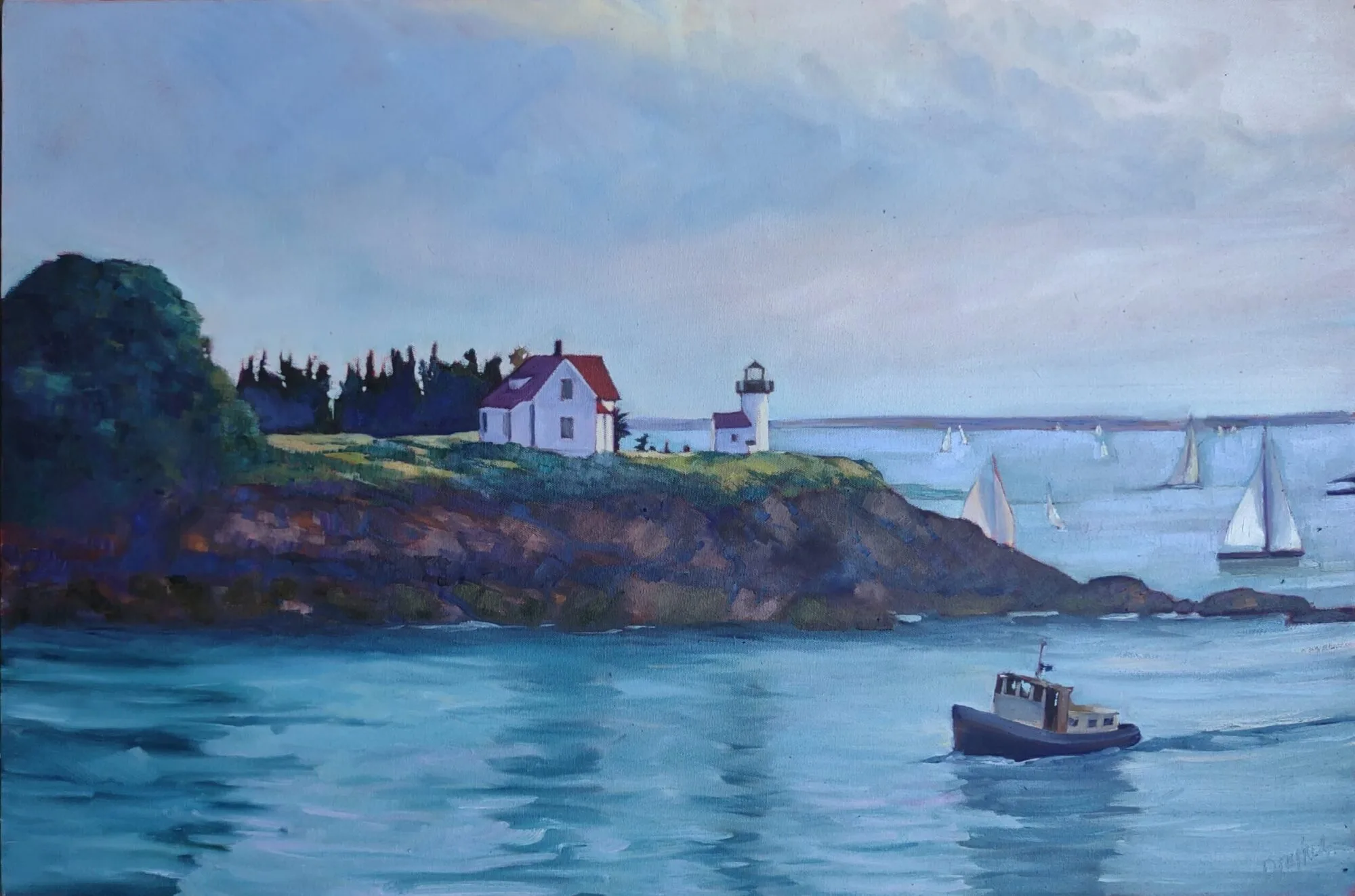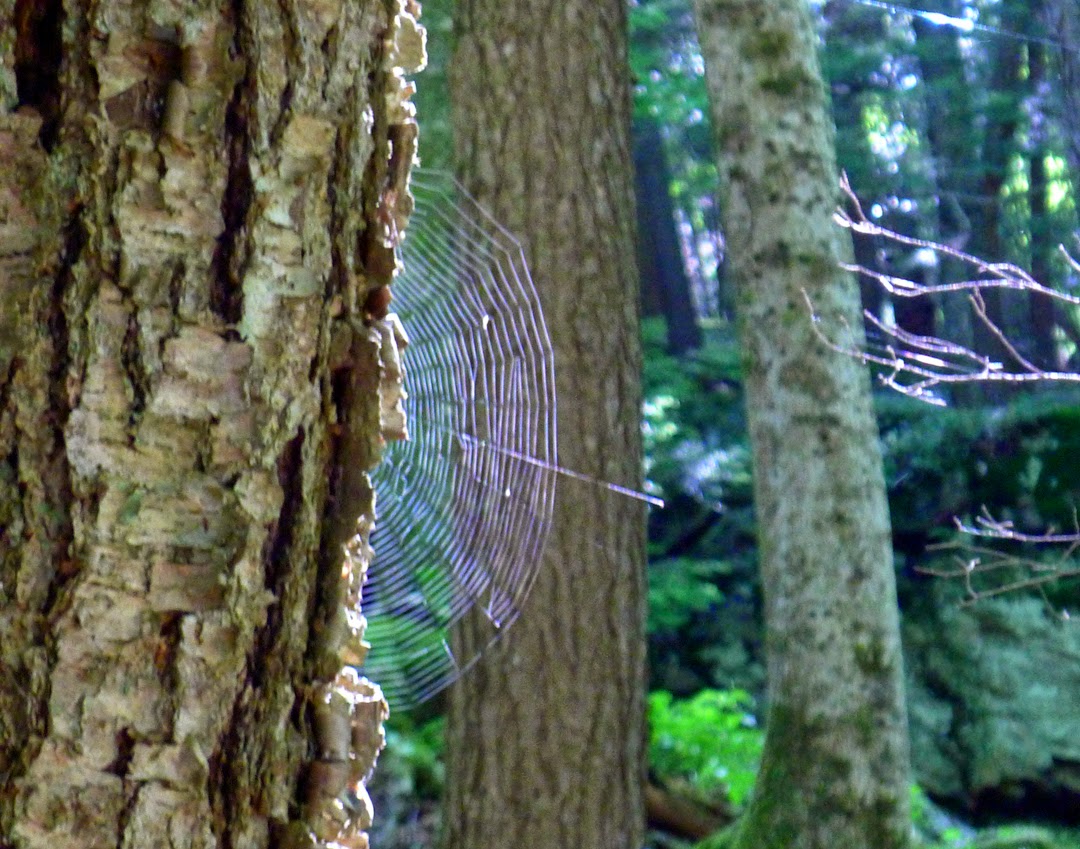In the age of the internet, what happens to your social and work connections when the power goes out?
 |
| Cliffs, oil on canvasboard, by Carol L. Douglas, available. |
I seldom get premonitions, so I’ll classify my unease about yesterday’s windstorm as logical. Despite what the experts said about the trees being frozen in place, it seemed like 50 MPH gusts stood a good chance of uprooting something. My home-above-the-shop is on Route 1, just up the road from the hospital. We don’t lose power often, and when we do, it’s mercifully brief.
At 8 AM, the lights flickered and died. My painting students are very nice people, and we’ll just reschedule our regular Tuesday-morning Zoom class. But the experience revealed a weakness in my business plan.
Thirty years ago today, Rochester, NY had a cataclysmic ice storm that paralyzed the city for weeks. Hundreds of thousands of homes were without power, some of them for almost two weeks. The storm caused an estimated $375 million in damage (in 1991 dollars).
 |
| Woodshed, oil on canvasboard, by Carol L. Douglas, available. |
Most homes built after 1900 have no real way to heat in the absence of electricity. My friend Judie shivered for two weeks next to a lovely, non-working fireplace. Ed’s collection of hundreds of tropical fish died from the cold.
Since then, we have had a secondary heat source (a woodstove) and the lanterns, batteries, and cooking tools necessary to survive a long power outage. When the power flickers, it’s no big deal. I can cook as badly on a woodstove as I do on our electric range.
But that doesn’t address the sea-change in our work habits since 1991. My husband telecommutes to an office in Rochester, where an unattended computer compiles his instructions. I’ve used social media for business for a decade. When the power went down, we both had laptops with long battery life, but we were as cut off as if they’d just collapsed.
 |
| Downdraft snow, oil on canvasboard, by Carol L. Douglas, available. |
Our server and router have battery backups, but neither are designed for a long-term outage. We can both use our phones as hotspots, but the drop-off in performance was striking. And even the best cell phones really have a working life of only about ten hours between charges.
Still, I’m a painter, which is one of the oldest technologies in the world. The sunlight was beautiful. Ken DeWaard texted to see if I wanted to paint outside, but reconsidered once he’d gone out and felt the wind. It was a studio day.
I sat down at my easel, only to realize that all my reference photos are on another computer. In the old days, I painted from photos, but no more.
 |
| Snow at higher elevations, oil on canvasboard, available. |
Yes, I could have devised some work. I have a copper plate sitting on my desk waiting for me to cut and print. I could have made a still life. I could even have organized receipts to do my taxes. Instead, I took a long winter nap.
I woke up to realize the power was back on, but it was a caution. Just as we rethought our dependence on the grid thirty years ago, we need some kind of backup plan to access the internet today. And perhaps a little less dependency, as well.











